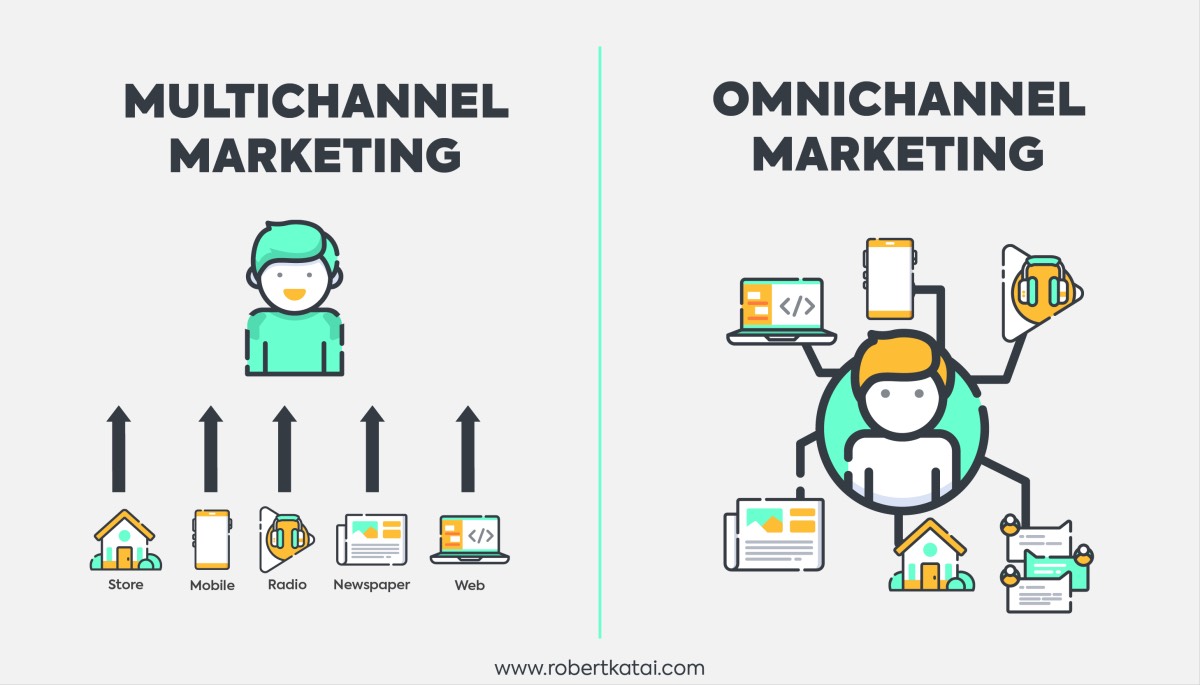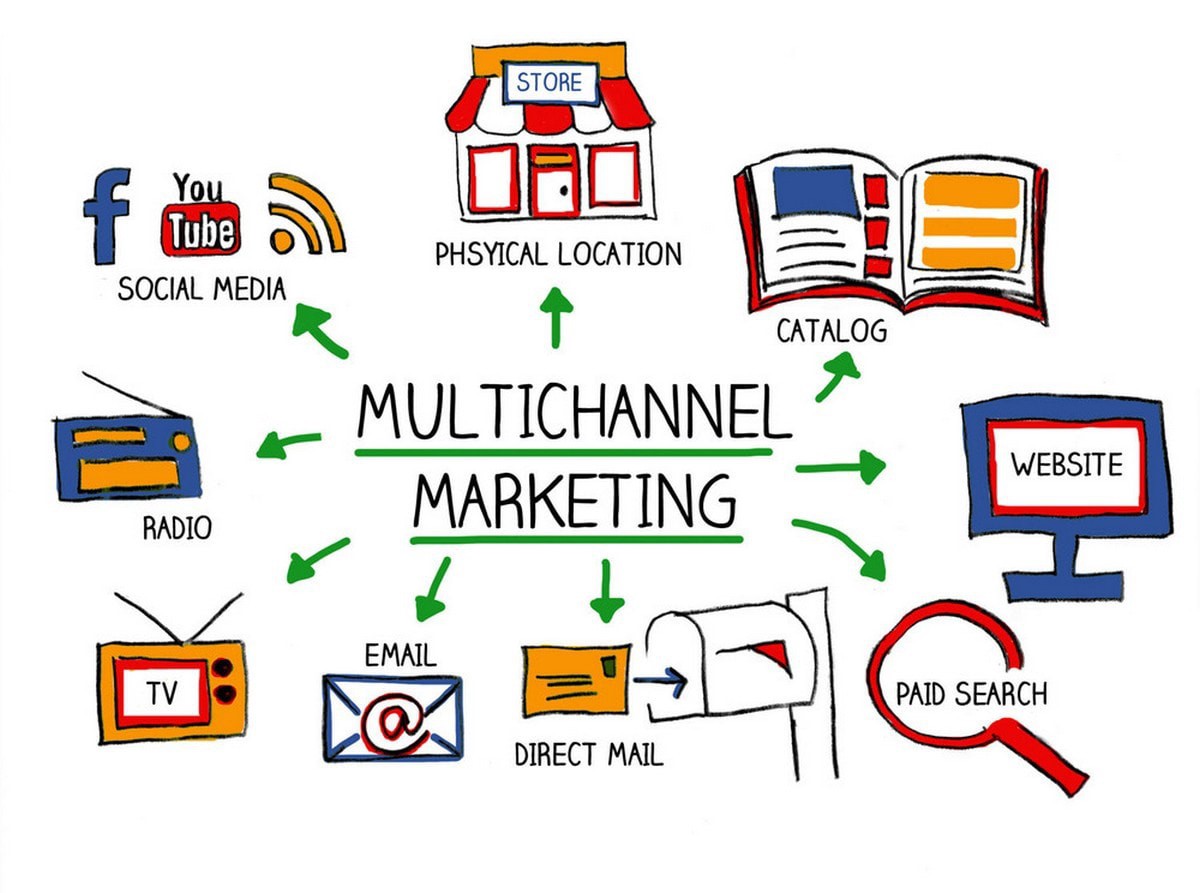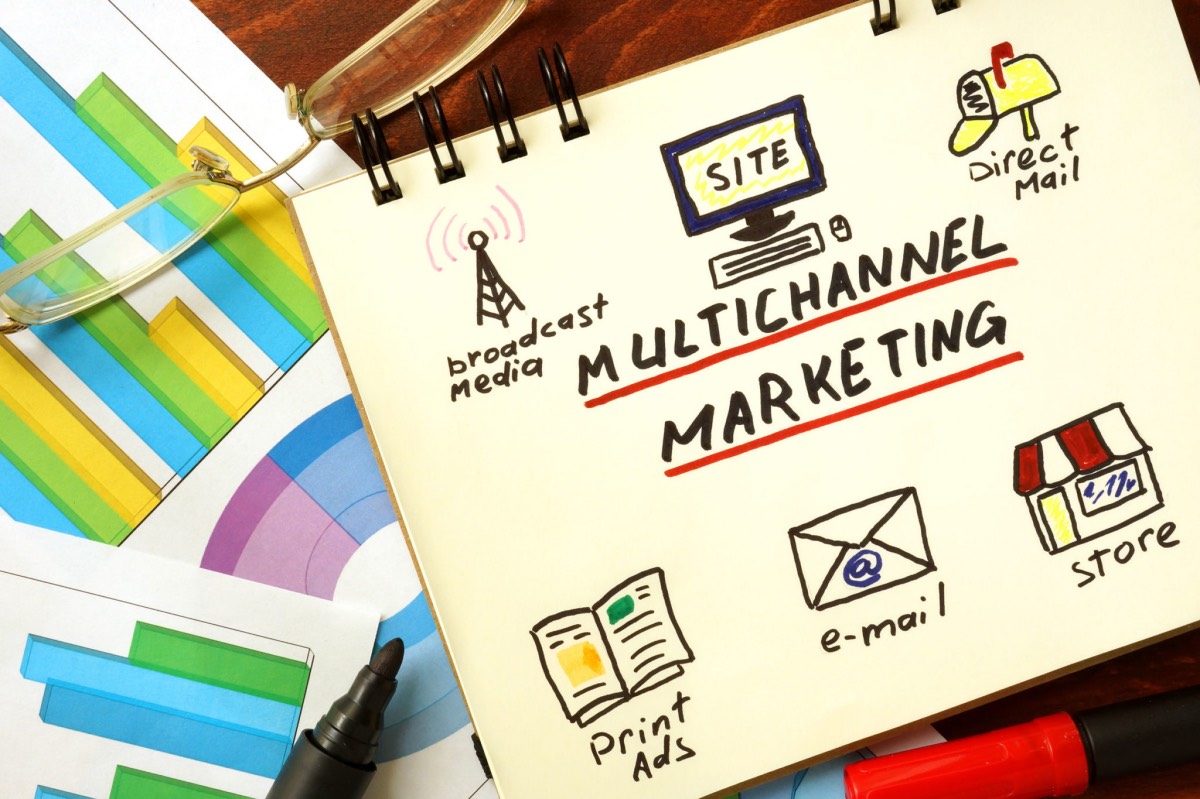[dropcap]M[/dropcap]ultichannel marketing is the practice of reaching customers through a variety of direct and indirect communication methods including retail stores, direct mail, websites, mobile, email, Apps, and mail-order catalogues. All these channels give the customer choices and outlets to take action. Multichannel marketing is often confused with omnichannel marketing. While you reach customers through different channels in multichannel marketing, omnichannel marketing involves using all your channels to create a single unified experience for the customer. It involves giving customers a great experience from the first touchpoint to the final touchpoint.

Why Multichannel Marketing Is Important
It is important to provide a variety of channels to reach customers because these are the methods customers use to interact with brands and their world. Due to the widespread use of internet technology as well as advancements in technology generally, people now have options and customers tend to use the tools and resources available to them. For instance, in the past mail-order catalogues were one of the few methods a customer could assess a company’s products and place an order outside of the store. Today, a customer can do exactly the same thing using websites, mobile, and Apps.
Multichannel marketing is important because companies and brands have to meet customers where they are, and they have to use the methods which customers are conversant with. It is now critical for brands and companies to engage in multichannel marketing and ensure that all channels are not only available to the customer but are also customer friendly and seamless.
Benefits of Multichannel Marketing
1. Consistent Messaging Across Channels
It provides the opportunity for brands and companies to create consistent messaging across all its channels. For instance, across websites, mobile apps, retail stores, and mail-order catalogues, a company can create a consistent message and run a single campaign.
2. Increased Awareness
Multichannel Marketing takes advantage of technology and customer preference to create increased brand awareness. Meeting customers where they are; on the internet, on Apps, in stores, on social media enables companies and brands create increased awareness for their products and brands.
3. Customer Preference
It provides an opportunity to reach customers on their preferred channel. Customers can be targeted with the right product and the right message on their preferred channel. Marketing research and the availability of data means that a company will be able to determine which customers are more likely to use which channels, and therefore effectively target potential customers.

How To Get Multichannel Marketing Right
1. Provide Great Customer Service and Customer Experience Across All Channels.
Whether the channel is your retail store, website, App, SMS messages, or Facebook page where customers can view or order your products, each channel should give customers a great customer experience. It should be without glitches, easy to use and navigate. It should enable customers to find the products and information they require. On each channel, customers should also be given an option where they can send a customer complaint. This contributes to creating a great experience across all channels. Good customer experience across channels will likely result in customer retention and free word-of-mouth advertising.
2. Create a Multichannel Marketing Platform:
To get multichannel marketing right, you should create a multichannel marketing platform. This is a platform that has technology and processes to support advanced analytics, campaign management, capabilities for content management, and inbound and outbound marketing programmes, and digital marketing. A good multichannel marketing platform should have capabilities to market by video, email, web, and mobile.
A multichannel marketing platform will enable a company to combine traditional marketing with emerging marketing methods. In addition, a single campaign can be replicated across all channels. This enables the company to achieve the goal of meeting the right customer, with the right message, on the right channel, at the right time.
3. Integrate and Align Marketing Departments.
Within a company, there could be different departments responsible for digital marketing, social media marketing, website management, and retail store management because companies tend to separate these roles. However, it is important to ensure that these departments do not work in silos, but are integrated, agile, and aligned to the same purpose.
This ensures that brand messaging is consistent across channels and marketing strategies are also aligned. This will allow a customer to engage with the brand and have a similar experience regardless of the channel.
4. Understand the Customer and Get Research Across Different Channels.
One aspect that could make multichannel marketing fall apart is when a company does not make use of marketing research and data across individual channels. Customer behaviour and factors important for customer engagement across different channels vary. For instance, a company should understand the demographics and the customer needs of the customers that engage with the company on various channels. This information will enable a forward-thinking marketing team to incorporate into its marketing strategies, options that appeal to each customer segment across various channels.
Putting It All Together
Omnichannel marketing and multichannel marketing work together to give customers a great experience; they both help to increase customer retention. In today’s business climate, customers can be reached on Facebook, Instagram, Youtube, In-store, Apps, Twitter, the company’s website, blogs, and various online news feeds.
It is necessary for companies and brands to develop all available channels and avoid relying on a single channel to avoid being at the mercy of any given channel or organization. For instance, when Facebook changed its algorithm and how it displayed news in feeds, many news organisations lost significant traffic to their websites. Google’s change of its algorithm regularly affects websites and can hamper businesses that are over-reliant on them.
Companies and brands today cannot succeed without effective multichannel marketing. They can take advantage of the benefits which include the opportunity for consistent messaging across channels and meeting customers where they are. Staying on top of research and knowing how to interrogate and utilize data, using a good multichannel marketing platform, providing excellent customer service on each platform, integrating marketing departments and aligning their purpose will all contribute to successful multichannel marketing because it matters.







